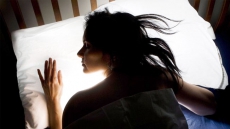Practicing yoga can improve quality of life of men with prostate cancer who are undergoing radiation therapy, says a new study led by an Indian-origin researcher.
The researchers found that general quality of life and measurements of side effects often experienced by prostate cancer patients - including fatigue, sexual health and urinary incontinence - were stable throughout a course of outpatient radiation therapy among the men participating in an intensive yoga programme.
"Data have consistently shown declines in these important measures among prostate cancer patients undergoing cancer therapy without any structured fitness interventions, so the stable scores seen with our yoga programme are really good news," said Neha Vapiwala, associate professor at Abramson Cancer Centre, University of Pennsylvania in the US.
The possible explanation for the benefits of yoga seen in the study stems from physiologic data demonstrating its ability to help reduce cancer-related fatigue and to strengthen pelvic floor muscles and increase blood flow.
These latter aspects may in turn improve erectile dysfunction and urinary incontinence, Vapiwala said.
Between May 2013 and June 2014, the study participants attended twice-weekly yoga classes of 75 minutes each, taught by trained Eischens yoga instructors.
"Eischens yoga incorporates ideas from movement theory and kinesiology and is accessible to all body types and experience levels," said Tali Mazar Ben-Josef, certified Eischens yoga instructor and researcher at Abramson Cancer Centre.
Most yoga participants reported a sense of well-being at the end of each class, Ben-Josef said.
Severity of fatigue scores demonstrated significant variability over the time of treatment. Erectile dysfunction, urinary incontinence, and general quality of life scores demonstrated steady trends.
The findings were presented at the Society of Integrative Oncology's 12th International Conference in Boston.





